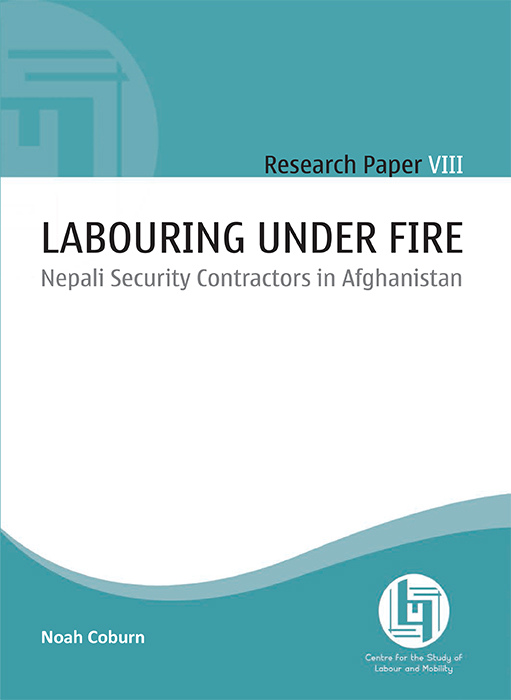
Labouring Under Fire: Nepali Security Contractors in Afghanistan
Author(s): Noah Coburn
Year of Publication: 2016
Publication Type: Research Paper
Published by: CESLAM
This paper explores some of the repercussions of Nepali labour migration in times of conflict, arguing that security contracting shares much with other forms of migratory labour but also that the commodification of violence this process entails raises certain opportunities and risks for the contractor that neither the Nepali government nor the international community (and the US in particular) are addressing properly. The unique nature of neoliberal contracting and subcontracting during war times makes the state less relevant than the company managing the contracting in terms of defining the Nepali experience. At the same time, the lack of a transparent process around contracting jobs and how proper documentation, such as visas, is secured, put workers at a disadvantage and open to exploitation. Yet, it is also clear that some of these risky practices have become an essential aspect of the Nepali economy.


GET IN TOUCH